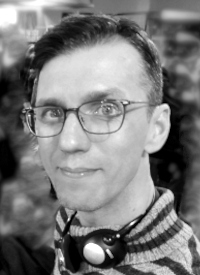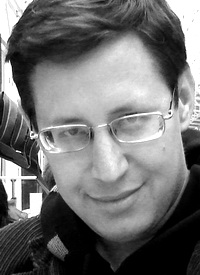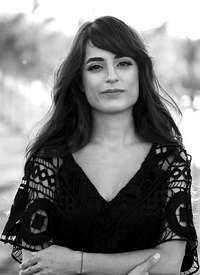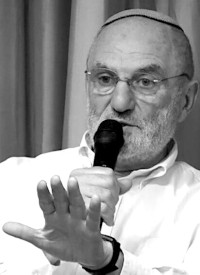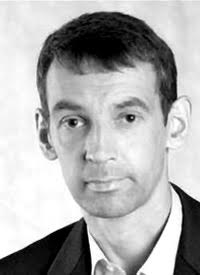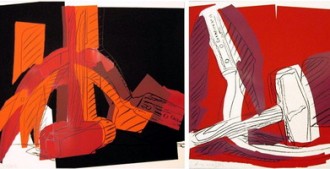
In recent years, I have often been asked why I still call myself a communist. Good people who are concerned with my fate hinted that this is not the most reasonable position for a citizen of our country, which has turned anti-communism into the basis of state ideology and politics. Is it worth creating additional problems for yourself? -- friends ask me carefully. They reasonably remind me that I myself did not spare criticism for the leadership of the now-banned Communist Party of Ukraine, and more than once spoke about the unseemly pages of the Soviet past. And loyalty to leftist ideas does not at all imply loyalty to a single concept or word -- even if there is a great, terrible and wonderful history behind it.
To answer this question, I need to understand myself, and remember how I came to my political views. Perhaps this can be called an accident -- but only in the sense of Hegel's definition, who meant by it an as-yet unknown pattern. Of course, I had to share the fate of my generation, turning into a good patriot, with a religious belief in the absence of any alternative to a market economy and a full set of nationalist prejudices. However, something went wrong -- and my personal development was carried out through resistance to right-wing dogmas, gradually imposed on us as immutable norms.
Perhaps books are to blame. My parents, a subway builder and a kindergarten speech therapist, put together a large library, as was customary at that time for many Soviet families. It contained many treasures, from Ivan Efremov and the Strugatsky brothers to Dreiser, Steinbeck, Marquez and Robert Merle, who wrote a novel about the red Parisian May. By the way, his book was published in Ukrainian -- but it didn’t matter, since I grew up in a bilingual environment since childhood, brought up with equal respect for Ukrainian and world culture. And this was an important vaccine against the contagious disease of nationalism.
In my childhood, there was never a place for idealizing Soviet society. Even at the end of perestroika, I discovered the classics of dissident literature, and I always knew that my great-grandfather Vasil Manchuk was shot on an unjust and absurd charge -- and my grandfather spent his youth in prison because of this. However, the same grandfather, who later went through the entire war against Nazism, said that the Soviet government gave him shoes, electric light and education in his native language. And his children were able to receive from the society built during his lifetime everything that many generations of our ancestors could not dream of. And this objective approach allowed me to develop a balanced view of 73 years of Soviet history -- not forgetting its crimes and achievements.
What I learned from books and stories was superimposed on my personal experience -- after all, my youth came during a turbulent period of capitalist restoration, when old ideals collapsed and new states were created, which immediately proudly declared their thousand-year history. Of course, at the time I did not understand the causes and essence of the events taking place around me, but I definitely did not harbor illusions about them. The beginning of the nineties did not at all dispose one to naive views of the world -- the country was engulfed in a crisis, the salaries of parents depreciated, and food transfers from the village were a holiday for the family. Clothes were bought in gigantic flea markets, stocks of potatoes stored on the balcony acquired strategic importance, and buckwheat with canned fish has been one of my favorite dishes ever since.
The jungle of the free market was growing around us -- and it was necessary to learn to live according to the laws adopted by it. After moving from the center of Kiev, I got to know them in a crowded school in the suburbs, studying on the second or third shift, in the class with the letter “K.” The embodied ideal of the generation were the Klitschko brothers who settled in my hometown, who had not yet gained worldwide fame, but were very popular in the Kiev suburbs thanks to their success in kickboxing and connections with the mafia authority Rybka. Their dog, a representative of a breed unprecedented for Soviet children -- the rat-like bull terrier Max -- rapaciously grinned at teenagers, as if warning what awaited us under the heavy heel of the sudden changes in the country.
Even then it was clear what place was prepared for me in the new reality of capitalist Ukraine. Born into the world in a huge country, great not so much for its notorious military-governmental power, as for the social gains of October -- which more than covered its many shortcomings -- I suddenly found myself in a poor, peripheral state, painfully dependent on external influence, which made the past its ideal, abandoning spacecraft in favor of embroidered shirts and clay Tripolye pots. And my life prospects were reduced to the opportunity to spend my life in office slavery, to create historical myths for the sake of a poor scientist’s salary, or to replenish the growing army of migrant workers.
Marxism, which I met at the Faculty of Sociology of the Kiev Polytechnic Institute, where the best teachers of materialist dialectics in the country found refuge, explained to me these contradictions of the post-Soviet world. And I immediately started engaging in political journalism and social struggle, hoping to someday change it. The study of philosophical works alternated with participation in protests and constant travel around the country. We helped in organizing strikes, clashed with the right-wing and the police, made our way with leaflets to steel mills, went underground to the miners and walked with them in protest marches to Kiev. Cooperation in the newspaper of the All-Ukrainian Union of Workers made it possible to study the background of numerous social problems, to pass them through ourselves, in order to explain them in articles or reports. And this practical component helped me to understand the relevance of the material learned at lectures.
I owe a lot to the now banned "communism" -- as it is customary for us to vulgarly call the totality of leftist views on the political and socio-economic world order. Thanks to Marxist theory, I was able to understand for myself the cause-and-effect relationships that determine the ugly nature of our society’s development, and the very logic according to which it occurs -- which allowed me to avoid the networks of politicians and propagandists who so easily deceived millions of my fellow citizens. In addition, my ideological choice made the need for a comprehensive knowledge of the world necessary, based on the famous words: "You can become a communist only when you enrich your memory with the knowledge of all the riches that humanity has developed." And this was expressed not only in interest in all spheres of scientific and practical human activity, but also in the desire to see and learn about life in different parts of the planet -- where the same mechanisms of oppression and inequality are at work.
Having visited different, often very dysfunctional and war-torn countries -- as a journalist and activist -- I realized how pervasive and global the influence of the Soviet experience was. Despite the historic defeat, this system, this alternative to the market order, has managed to influence huge masses of people, encouraging them to think, create and struggle. The inertia of this influence turned out to be unexpectedly strong -- despite splits and squabbles, despite the decline and bleak state of affairs in our day. Residents of different continents, people of different skin colors, representatives of different tendencies of the left-wing political paradigm, saw in us comrades united by a common class interest and a single humanistic goal. Communicating with them, we felt like part of a common tradition that goes back far beyond the era of scientific socialism -- to the first archaic attempts to struggle for social liberation and dignity, to Müntzer, Tábor and Monségur.
This path gave me a lot of great happiness, love and friendship, filling my life with the meaning it needs. And if this is so, I must accept responsibility for everything that was accomplished under the banner of the communist movement. And I am ready to pay for it in the conditions of anti-communist hysteria prevailing in our society.
No, this is not stupidity or pride. I understand: caution, calculation are very important for the left -- if they want to survive and develop in the conditions of a hostile political regime, with its totalitarian intolerance and pogroms. Many factors are at work against those who consider themselves communists. The leaders of the post-Soviet communist parties have shamelessly emasculated their inherited brand -- turning the word "communism" into a trademark on the political market. And the right-wing society, formed as a result of Euromaidan, blurred and discredited this concept, making it a curse or a pretext for denunciation. My friends are right -- Marxism does not recognize fetishes, and at one time this led Lenin to a decision to abandon the well-known and popular name of the Social Democrats, which bore the stamp of betrayal during the global military massacre.
This is all true. But I see that any mention of long-buried communism provokes fierce hatred among the most reactionary forces of our time, which, in the literal sense of the word, are destroying my country and its people. They are trying to completely erase this word from historical memory and public space -- rewriting textbooks, destroying monuments, renaming streets and entire cities. And they do this because to this day they are afraid of the revolutionary content of the emancipative idea, which is constantly reproduced by the very reality of capitalism.
And so, I will consider myself a communist.
By Andriy Manchuk
Translated by Greg Butterfield
-
Історія
Африка и немцы - история колонизации Намибии
Илья Деревянко история колонизации Намибии>> -
Економіка
Уолл-стрит рассчитывает на прибыли от войны
Илай Клифтон Спрос растет>> -
Антифашизм
Комплекс Бандеры. Фашисты: история, функции, сети
Junge Welt Против ревизионизма>> -
Історія
«Красная скала». Камни истории и флаги войны
Андрій Манчук Создатели конфликта>>

.jpg)











 RSS
RSS
